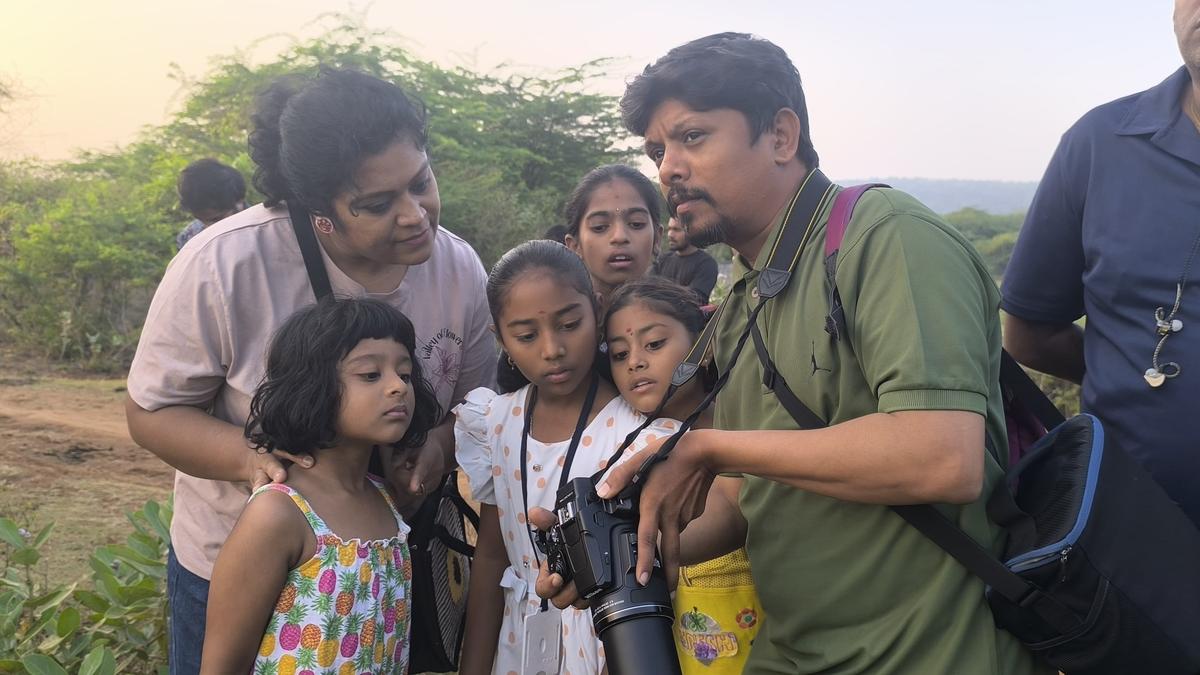
Citizen science projects in Visakhapatnam engage community members to document biodiversity
The Hindu
Citizen science projects in Visakhapatnam engage community members to document biodiversity, contributing valuable data for conservation efforts.
On a sunny afternoon in Visakhapatnam, a group of people armed with smartphones, notebooks and a love for Nature, gather at the base of Tenneti Park. The next two hours are dedicated to biodiversity documentation as part of a larger effort to conserve the region’s rich ecosystem. The group is a mix of seasoned Nature enthusiasts, students and first-time participants – all brought together by a common goal: to observe, record and document the species they see along the inter-tidal zones.
Back at the forested zones of Kambalakonda, another group wrapped up a session of birdwatching. Among the early sightings are the white-browned bulbul, Indian paradise flycatcher and a distant call of the black-rumped flameback woodpecker.
The participants log their findings on the iNaturalist app, contributing valuable data to global biodiversity platforms.
Environmental organisations in Visakhapatnam, Vizianagaram and Srikakulam are leading citizen science projects, transforming individual observations into contributors to science and in the process creating a network of citizen scientists whose work is filling knowledge gaps about species in their backyard.
Visakhapatnam-based organisation East Coast Conservation Team (ECCT) started its citizen science projects in 2020 along with shore walks to increase awareness about marine life. Organisations like Wilded have led the project forward through Nature education and awareness programmes. Andhra Pradesh’s intertidal biodiversity, marine life, sharks rays and skates and seashells are few of ECCT’s citizen science projects on the iNaturalist app.
“Intertidal was started in order to focus on the fragile ecosystem we see between high tide and low tide. We have recorded about 350 species only in the Visakhapatnam coastal area through the project,” says Sri Chakra Pranav Tamarapalli of ECCT. The citizen science project on sharks, rays and skates aims at getting information on catch and sightings of these vulnerable species out of which 40 per cent are threatened with extinction. Marine Life of Andhra Pradesh is a project that has all of the marine species sightings under one umbrella. Seashells of AP was started to record seashells that are seen on the shore but might not be alive as well.
The Visakhapatnam-based Wildlife Conservation Through Research & Education (WCTRE) on the other hand has initiated citizen science projects of biodiversity of Visakhapatnam, Srikakulam, reptiles and amphibians of Andhra Pradesh, sharks, rays and skates of India and orchids of Eastern Ghats.













